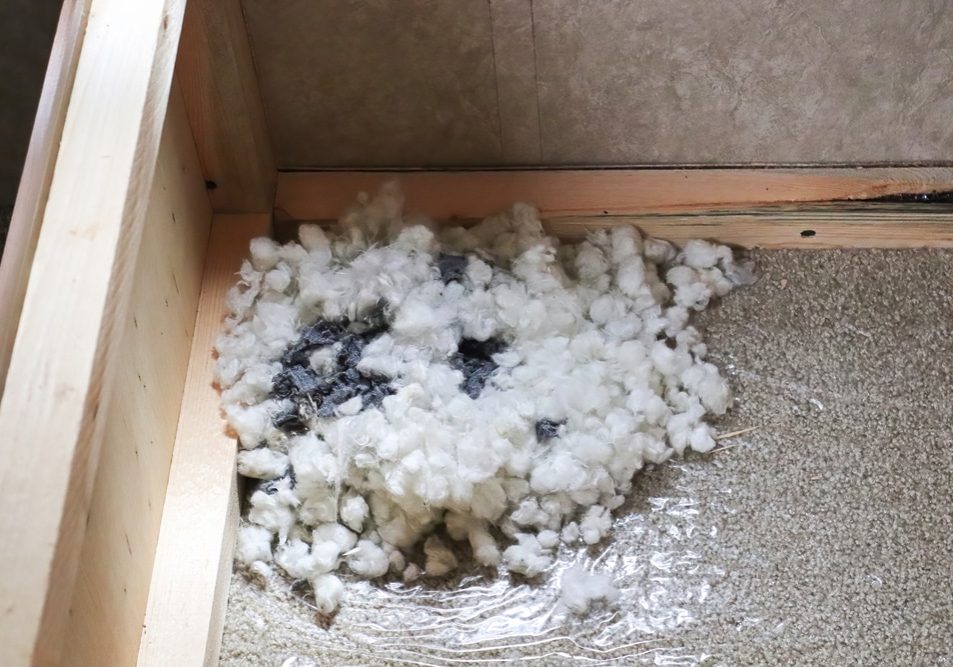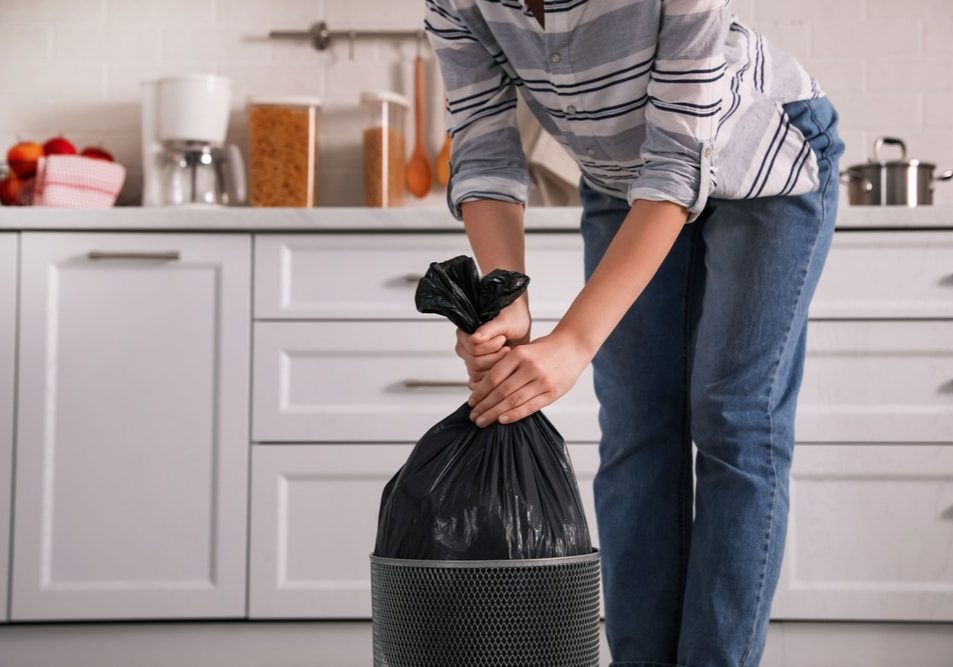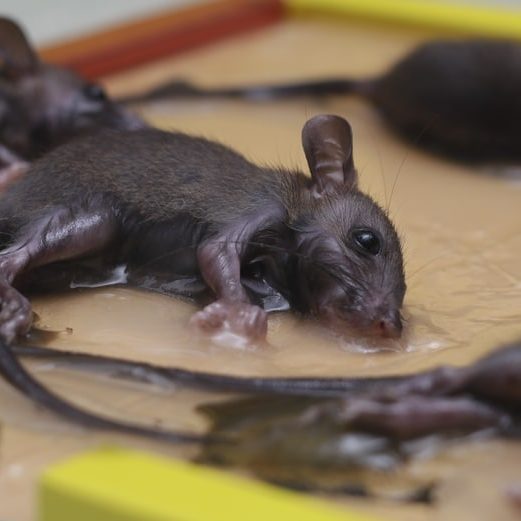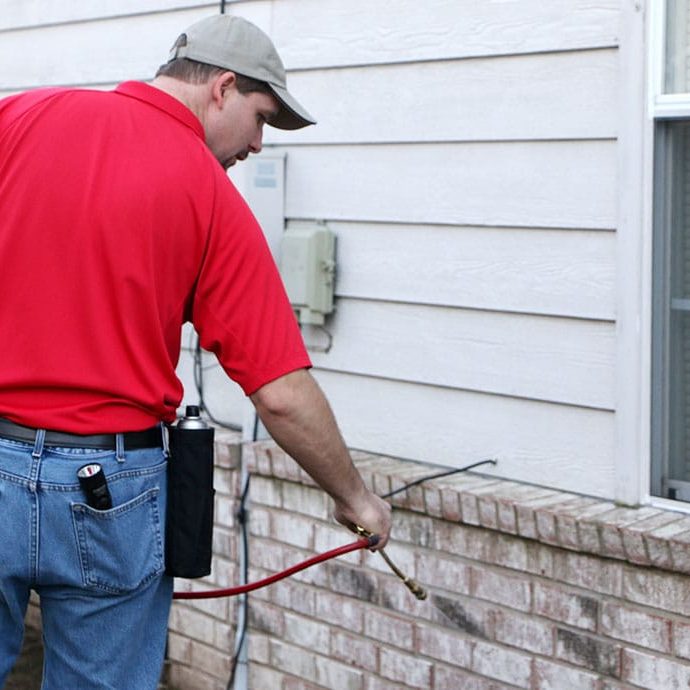Finding rodents at home can make anyone uneasy. These pests, including house mice and deer mice, bring diseases like hantavirus and leptospirosis. Our article shows you how to spot these uninvited guests early and kick them out for good.
Get ready for a cleaner, safer home.
Identifying Signs of Rodent Infestation
Identifying signs of rodent infestation includes noticing droppings, gnaw marks, and nests. Strange sights, sounds, and unusual odors can also indicate the presence of rodents.

Droppings, gnaw marks, nests
Finding mouse or rat droppings in your home can be a worry. Mouse droppings resemble black grains of rice, while rats leave behind bigger, capsule-shaped waste. These clues suggest that rodents may be contaminating your food and spreading diseases like salmonella, which can cause illnesses ranging from food poisoning to the bubonic plague.
It's important for homeowners to regularly inspect their kitchens, basements, and attics for these signs to catch infestations early.
Rodents constantly need to gnaw because their teeth never stop growing. This leads to them leaving chew marks on furniture, wiring, and walls. Such damage isn't just expensive to fix; it also increases the risk of electrical fires due to damaged wires.
Moreover, rodents make nests from shredded paper, cloth, or cardboard hidden in dark corners around your house – yet another indicator of an unwanted rodent presence that could negatively affect human health.
Strange sights, sounds, and odors
When you notice obvious signs like droppings, gnaw marks, and nests around your house, it’s clear that rodents might be the issue. But don't overlook less obvious hints of a pest problem.
Odd grease marks along walls or tiny footprints can signal rodents sneaking around your home. These creatures often stick to specific trails between their nests and food sources, leaving greasy smudges from their fur.
Listening for noises and noticing strange smells can also alert you to an unseen infestation. You may hear scratching or scampering sounds in ceilings or walls at night when rodents are most active.
Such noises could mean mice or rats are moving inside hidden parts of your house. Moreover, a stale ammonia-like smell usually points to mouse urine – a definite indicator of rodent presence.
This stench not only fills your home with an unpleasant odor but poses serious health risks by potentially spreading diseases such as rat-bite fever and contributing to conditions like Rocky Mountain spotted fever if not dealt with quickly.
Keeping an eye (and nose) out for these subtler signs is crucial in identifying problem areas for effective pest management.
Preventing Rodent Infestation
Preventing Rodent Infestation is essential for maintaining a healthy home environment. To learn more about effective prevention techniques, continue reading.
Regular maintenance and cleaning
Maintaining regular cleanliness is vital for preventing rodent infestations in homes. Frequently disposing of garbage and sealing food help eliminate potential food sources for rodents.
Additionally, conducting regular inspections for entry points and promptly sealing any gaps or cracks can prevent rodents from entering the home. Proper outdoor maintenance, such as trimming vegetation away from the house and maintaining a clutter-free yard, reduces potential hiding spots for pests.
Regular maintenance goes beyond cleanliness; it's an essential step in deterring rodent activity indoors. Simple practices like promptly repairing leaky faucets or pipes also help reduce moisture that attracts pests.
Consistently maintaining these practices creates an environment that isn't conducive to rodent habitation.
Proper sanitation and hygiene
Proper sanitation and hygiene are crucial in preventing rodent infestation. Rodents are drawn to places with accessible food, clutter, and standing water. Storing food in airtight containers, cleaning up spills promptly, disposing of garbage regularly, and sealing cracks and crevices will reduce the risk of attracting rodents.
Educating homeowners about maintaining a clean environment is essential; bird feeders should be placed away from the house to minimize attractants for rodents. Keeping outdoor areas free from debris and properly storing firewood can make it less hospitable for rodent habitation.
Regularly washing hands before handling food or eating is also important in preventing diseases associated with rodent infestations.

Landscaping and outdoor maintenance
Maintaining a clear perimeter around your home is essential to prevent rodents from entering. Regular lawn mowing and removal of yard waste is crucial in deterring rodents. It's important to trim overgrown vegetation away from the house to reduce potential entry points for these pests.
Clearing the area around your home of clutter and debris will remove hiding spots for rodents, ultimately helping keep them at bay. Proper outdoor maintenance not only enhances the appearance of your property but also contributes to a rodent-free environment.
Educating homeowners
Prevent rodent infestation by sealing holes and cracks in your home, maintaining a clean environment, and removing food and water sources. Educating homeowners about these practices will help them take proactive measures to prevent health hazards associated with rodent infestations such as salmonellosis and leptospirosis.
How to reach out to Emtec Pest Control
For professional pest control services, homeowners can reach out for assistance by calling 918-663-0613 or visiting the office located at PO Box 581717, Tulsa, OK 74158, or the location on 1241 N Sheridan Rd, Tulsa, OK 74115.
At Emtec Pest Control, we are committed to safe and responsible pest control. We understand that your family’s safety is your number one priority, so we make it our priority, too.
If you have any other questions about any of these pests or pest control for your home or business, contact your Oklahoma pest control experts at Emtec Pest Control by calling us or by filling out our online contact form.


